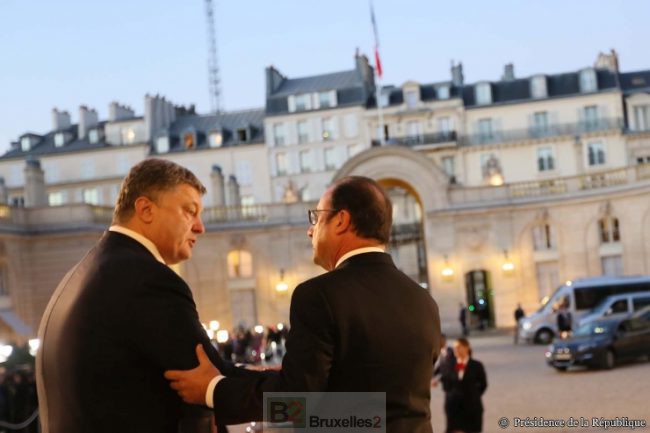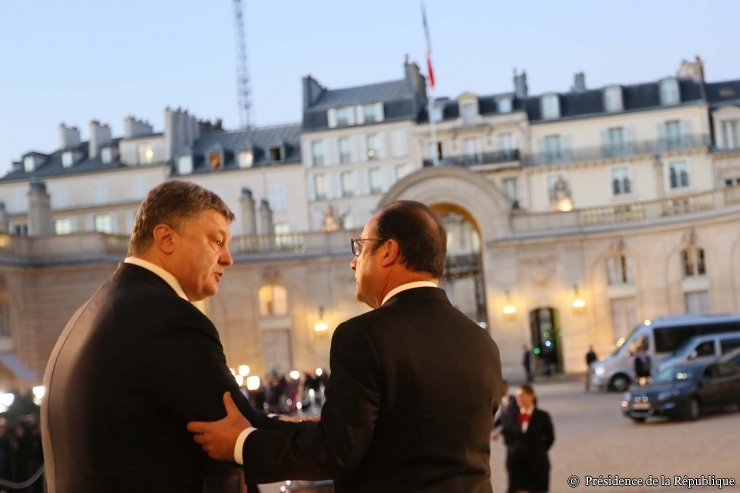With Macron, the moult of the Fifth Republic? Power goes to Parliament?

(B2) The "real" election that will decide the future of France may not really be the second round of presidential elections this Sunday. It will take place on June 11 and 18, during the legislative elections.
A paradox
While the presidency of the Republic is normally the major place of French power, it is no longer automatically the decisive election. All the difficulty for Emmanuel Macron (as it would have been for Marine Le Pen) will then be to gather a sufficient majority behind his program. A president without a majority, even with significant powers, sees his power drastically reduced to questions of defense (he remains the head of the Armed Forces) and international presence.
Four Majority Hypotheses
Several hypotheses can emerge:
1st hypothesis: absolute majority. In the wake of the presidential election, the movement Working, which is transformed into a social-liberal party, manages to agglutinate an absolute majority on its name. What generally happened in previous elections.
2nd hypothesis: participatory majority. "En Marche" obtains a relative majority largely sufficient to be able to govern by obtaining, at the same time, the confidence of the assembly and by having, either on the right or on the left, the occasional support necessary to have the necessary government majority.
3rd hypothesis: the coalition. Emmanuel Macron does not obtain a sufficient majority and must form a coalition government with the contribution of socialist votes or right-wing votes. We would then have a coalition government imposed by parliamentary grace.
4th hypothesis: cohabitation. Either he does not obtain this majority, does not manage to constitute a majority of government. And another government is being formed, with a Prime Minister and a government program that will be imposed on him. Macron's victory in the presidential elections will then have been short-lived to impose his program. But his figure as president could ultimately prevail, and in five years lead the En Marche movement to a more certain sustainability.
The return of Parliament
In three of these four hypotheses, the French parliament regains a certain role that it had lost in recent years, the party in power merging with the person of the President of the Republic and the Prime Minister. The majority then having an essential role, supporting the government, with a margin of maneuver quite limited to the usual grumbling of a majority jostled by an executive. The Fifth Republic could then evolve from a presidential regime to a parliamentary regime.
A test of the strength of traditional parties
The legislative elections could also be the true test of solidity, or of the weakening of the government parties (The Republicans and the Socialist Party). For Les Républicains (right), we can bet that the "Fillon" episode erased, the party will find a certain unity to go to battle if not totally united, at least reunited. Each of the components of the party (Fillon, Sarkozy, Juppé, etc.) having more than interest in finding in the legislative elections the outlet for the victory which they lacked in the presidential elections. In a country with conservative depths, the Republicans could then impose one of their own as Prime Minister (François Baroin?) or, failing that, constitute a minority strong enough to constitute a weighty ally to Macron or an opposition weight.
For the Socialists, the showdown is much more vital. The Socialists who have rallied, openly or intellectually, to Macron, such as Le Drian, will have to leave the party of which they were one of the major pillars. This is a case of no return. And that could actually mean the implosion of the Epinay party.
As for the National Front, its objective will henceforth be to form a group in the National Assembly, allowing it to have a voice and to be the service spur of a government which will always be tempted to intervene in reaction.
The Europe of defence, a common vector for the parties of government
In all these hypotheses, an almost certainty. The three government parties (The Republicans, Socialist Party, En Marche) share, beyond their differences, the same sensitivity: defense is a major priority. And on the Europe of defence, their remarks all come together, the differences being calculated down to the millimetre. They are all in favor of strengthening European ambitions in this area, of having a strong Europe rather than a flabby union of interests, funding and common actions... This is good because it is exactly the feeling that predominates in Brussels both within the European Commission (JC. Juncker, F. Mogherini, etc.), which is preparing a series of proposals in this direction, and within the European Parliament.
(Nicolas Gros-Verheyde)

